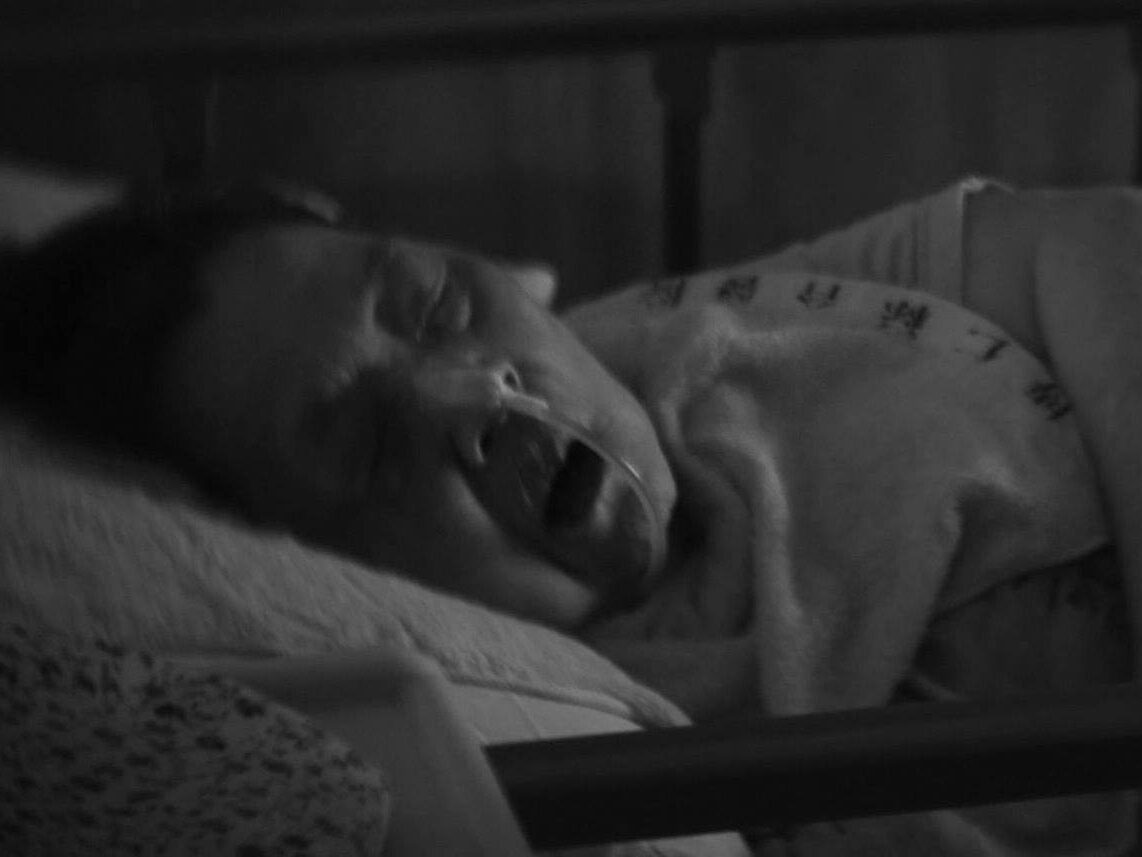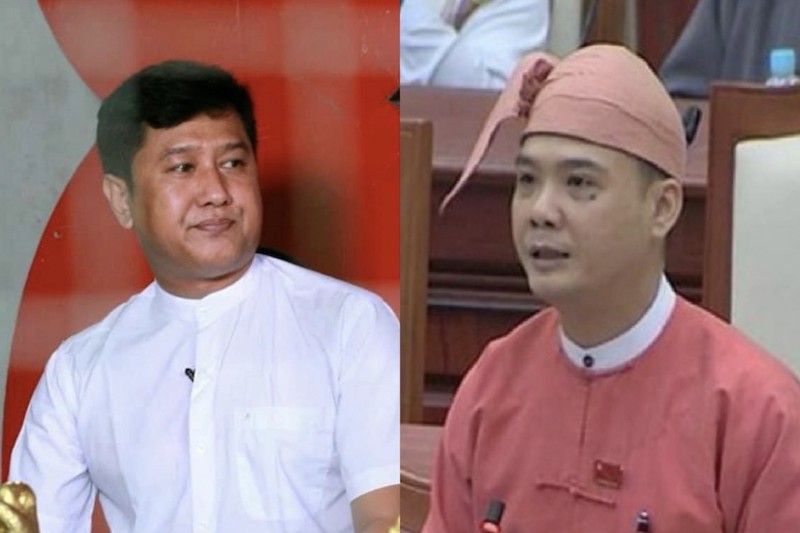Two of Myanmar’s most prominent dissidents were among the four reportedly executed inside Insein Prison on Saturday.
Myanmar’s military junta announced on Monday that it had executed two top political dissidents—Ko Jimmy, 52, a veteran of the 1988 pro-democracy uprising, and Phyo Zayar Thaw, 41, a former National League for Democracy (NLD) MP—and two others.
The two longtime activists, who were sentenced to death in January for allegedly plotting to carry out attacks on regime targets, had been in military custody since their capture late last year.
The two other men were Hla Myo Aung and Aung Thura Zaw, who were executed for allegedly murdering military informants, according to a junta spokesperson.
They had been charged under the Counter-Terrorism Law and sentenced to death by a military tribunal in Yangon for “murdering innocent civilians.”
“The punishment has been conducted under the prison’s procedures,” according to a statement that appeared in the Global New Light of Myanmar, a junta mouthpiece, on Monday. No further details were provided.
Hla_myo_aung_aung_thura_zaw.Jpeg
Myanmar Now has received information that the families of the prisoners were invited to Yangon’s Insein Prison on Friday and were allowed to communicate with them from a building within the prison’s precincts via Zoom, but not in person.
The next morning, all four prisoners were reportedly executed in the prison’s grounds. According to prison sources, their bodies were cremated at Yangon’s Htein Pin cemetery later the same day. This information could not be confirmed at the time of reporting.
According to a prison source, Ko Jimmy looked healthy and strong and told family members, “Don’t worry. Everyone has his own share of Karma. I am doing some meditation these days. I live with my own Dhamma.”
Following the Zoom meeting, the family members were told by officials that the prison procedures would proceed and that they should not return to the prison to bring food or medicines for the prisoners.
After the announcement was made on Monday that they had been executed, the families of Ko Jimmy and Phyo Zayar Thaw returned to the prison with their lawyers to demand more information from prison authorities.
According to a source close to the families, prison officials refused to say when the executions were carried out. When the families asked if they could collect the bodies, the officials said they were not required under the law to release them.
“They won’t be holding funerals for them,” the source said of the families, who refused to accept that their loved ones had been killed by the regime.
“This is completely unacceptable,” the source added.
According to figures released by the Assistance Association for Political Prisoners (AAPP) on July 22, a total of 117 people have been sentenced to death by military tribunals since last year’s military coup, including 41 who were sentenced in absentia.
In March of last year, Myanmar’s junta imposed martial law in 11 townships, including six in Yangon, across the country, giving the regional military authorities absolute judicial and administrative authority in those areas.
At the same time, it also instituted the death penalty for 23 crimes covered by the Penal Code, most of which would not be treated as capital crimes in a civilian court.
Arrests
Both Ko Jimmy and Phyo Zayar Thaw were accused of leading and planning guerrilla attacks against the junta’s forces and their allies last year.
Ko Jimmy was arrested during a raid in North Dagon Township in late October. He was sent to a military hospital in Mingaladon Township and admitted to an intensive care unit for days due to injuries he sustained during his capture by the armed forces.
The military issued an arrest warrant for Ko Jimmy on February 13, accusing him of inciting unrest and threatening “public tranquillity” for authoring social media posts critical of the coup. For the next eight months, he had moved locations frequently to avoid arrest while participating in various demonstrations.
Ko Jimmy, whose birth name was Kyaw Min Yu, was also a writer. He was imprisoned in 1988 for his role in the anti-dictatorship movement at that time and remained behind bars until 2005. In 2007, following the Saffron Revolution, he was arrested again and held until 2012.
He is survived by his wife, Nilar Thein—also a 1988-generation activist—and a teenaged daughter.
Former parliamentarian Phyo Zayar Thaw was captured by the military in November in Dagon Seikkan Township. The junta accused him of orchestrating numerous attacks on coup regime targets.
Phyo Zayar Thaw represented Zabuthiri Township in Naypyitaw after securing a Lower House seat in the 2015 election, which the NLD won in a landslide. He had previously won a seat in Naypyitaw’s Pobbathiri Township during the by-election in 2012.
Before becoming a politician, he was a prominent pro-democracy activist who had earlier risen to fame as a member of the pioneering hip-hop band Acid.
Condemnations
In the wake of the junta’s executions, civil society organisation Progressive Voice called on foreign governments to impose a global arms embargo and targeted sanctions against the junta.
“The world must urgently act to condemn the cruel execution of four democracy activists in Myanmar and stop the Myanmar military’s deplorable acts of terror,” the group’s statement said.
Khin Ohmar, Progressive Voice’s chairperson, described the executions as exemplifying “the military’s blanket impunity over its campaign of terror against the people of Myanmar.”
The comment was a reference to the widespread repression that followed the February 2021 coup. Nationwide opposition to military rule through protests, labour strikes and armed resistance has been met with brutality by the junta’s armed forces, who have killed at least 2,100 people during this period and continue to detain more than 10,000 in prisons across the country, according to the AAPP.
“The widespread and systematic murders of protesters, indiscriminate attacks against entire villages, and now the execution of opposition leaders, demands an immediate and firm response by member states of the United Nation,” wrote Tom Andrews, UN Special Rapporteur on the situation of human rights in Myanmar.
He called the recent executions “a depraved act” that should serve as “a turning point for the world’s response to [Myanmar’s] crisis.”
Elaine Pearson, acting Asia director at Human Rights Watch said the executions were “an act of utter cruelty.”
“The junta’s barbarity and callous disregard for human life aims to chill the anti-coup protest movement,” she said in a statement, calling for foreign governments to show the junta that there will be consequences for its atrocities and crimes.
“They should demand immediate measures, including the release of all political prisoners, and let the junta know the atrocities it commits have consequences.”
Amnesty International said that the death penalty has become a tool for the junta in the ongoing persecution, intimidation and harassment of all who challenge the coup regime.
“These executions amount to arbitrary deprivation of lives and are another example of Myanmar’s atrocious human rights record,” said Erwin van der Borght, the regional director of Amnesty International.
source myanmar-now

